Landlocked and Lovin’ It: Valeska Schneider heralds the rise of a new kind of surfer
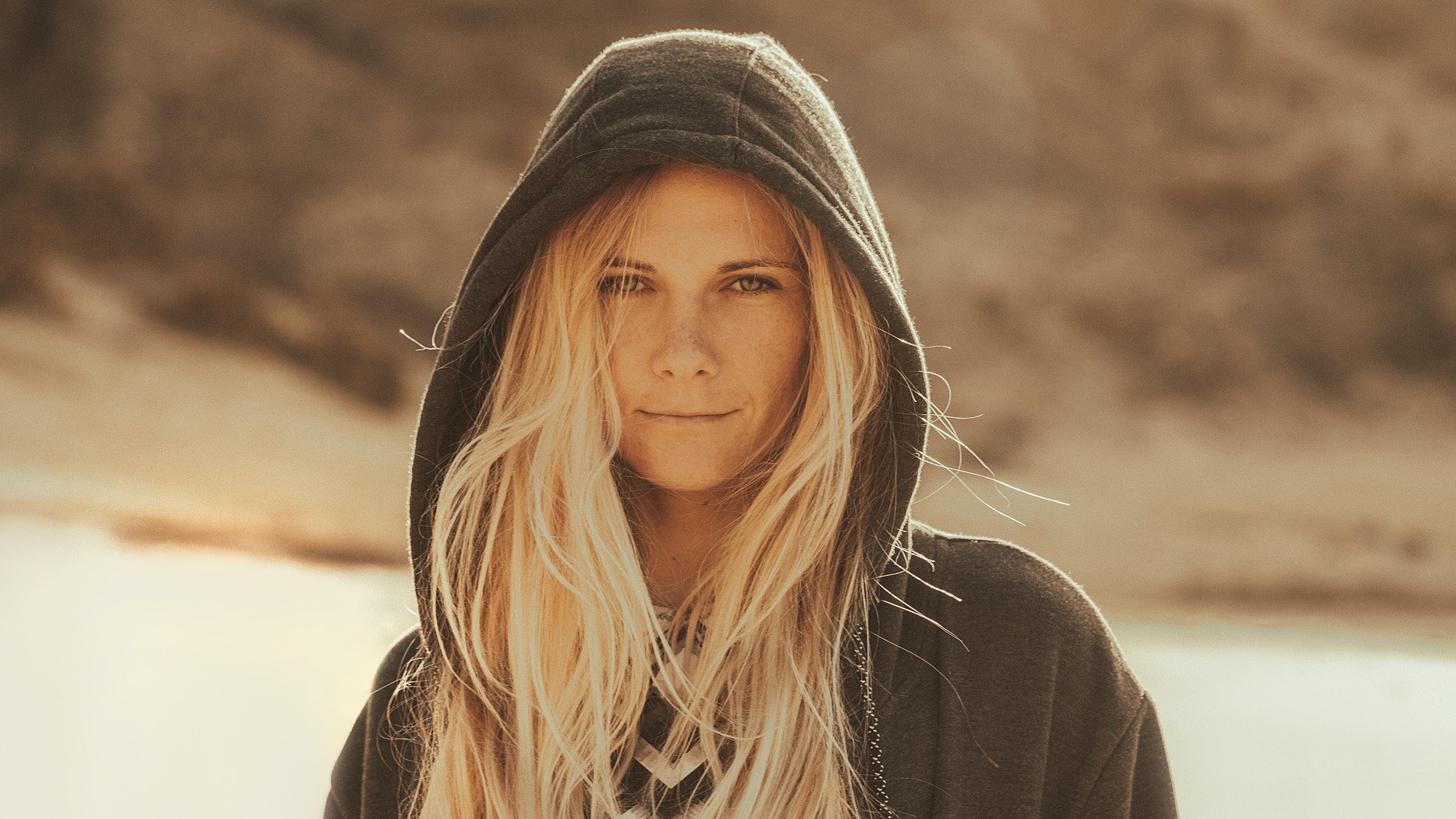
“Multi-wave surfer” is an emerging term. What Kai Lenny is to “multiple-craft surfing” (SUP, kite, wind, tow) Valeska Schneider is to riding different types of waves (river, wave pool, artificial standing wave, ocean).
In surf-less countries throughout Europe and beyond riders are learning to surf in standing waves and then transitioning to the ocean with some wave pool sessions thrown in to round out their act.
But how does one affect the other? We learned in this interview that a technique that works in a standing wave pool can ultimately be detrimental to your traveling-wave approach (much to do with timing). Likewise, the leg strength developed while surfing a one-minute river wave helps one’s endurance for those ocean or wave pool sessions.
Valeska took up surfing late in life but through intense coaching, talent and a molten desire to be the very best, she has become one of the best multi-wave surfers around, landing on the German Surf Team for the ISA Games and placing on the podium at this year’s German National Rapid Surfing Championships in Berlin. We spoke to Valeska about multi-wave surfing and how it’s the new school for surf-less places in Europe and throughout the world.
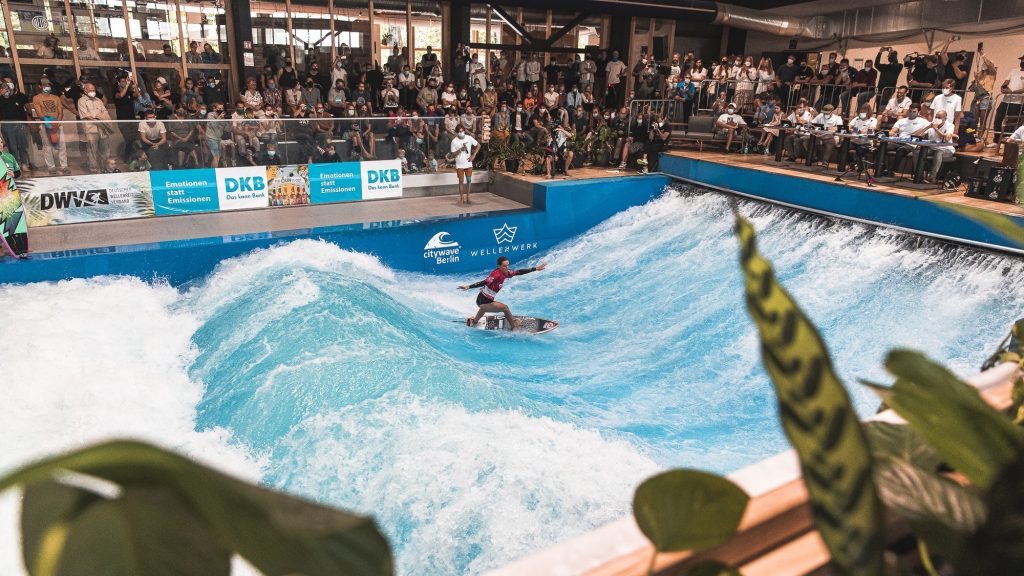
Most professional surfers started at a very young age, but you began when you were older. How did you get so good in such a short amount of time?
I had a lot of coaching. And the camp where I learned to surf was a one-month academy and from the beginning, it was video coaching and coaches explaining the waves. And I was just so addicted like I’d surf every free minute. And even when it was really, really bad conditions and no one would be going out I was like, “well, I want to surf.” And so I surfed quite a lot in my first year. And yeah I always went to coaches and got advice on how to improve. In general, I’m quite ambitious and when I like something I really put my mind to it and set my priorities and goals, and that’s what I did with surfing. A lot of times I was like, ‘oh, should I go to the party or should I stay at home and rest because tomorrow the waves are going to be good?” So I always had my priorities in different parts of my life but I think with surfing it’s a bit bit more special.
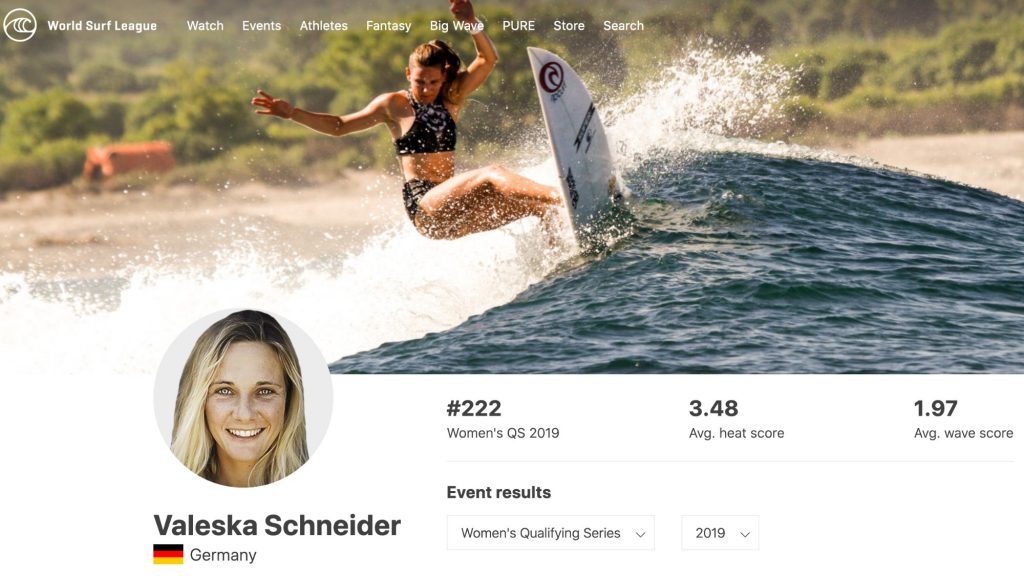
And so where did you learn to surf?
I actually learned to surf in Australia. I went there after high school, so I was older when I started surfing and I lived there in a surf camp for six months and then I didn’t really start surfing until I think I started in 2015. But because I’m from Munich everyone said “oh you can surf in Munich there’s a river wave there” and stuff.
How does river surfing compare to ocean surfing?
The river is really, really bad for your ocean surfing technique. It destroys your stance. And so I was wondering if I should do it. And I didn’t want to make my ocean surfing worse so I didn’t really get into it at the start. I just tried the river a couple of times and didn’t see how helpful it actually is. And then about two years ago, yeah, that’s when I started really practicing on standing waves and got really into rapid surfing.
But you didn’t spend much time in Germany?
I was studying for two years in Australia and afterward I was living for a year in Portugal. So I wasn’t in Germany very much. But I was part of the German National Team which brought me to competitions in the USA and stuff. So those years I was just really focusing on ocean surfing.
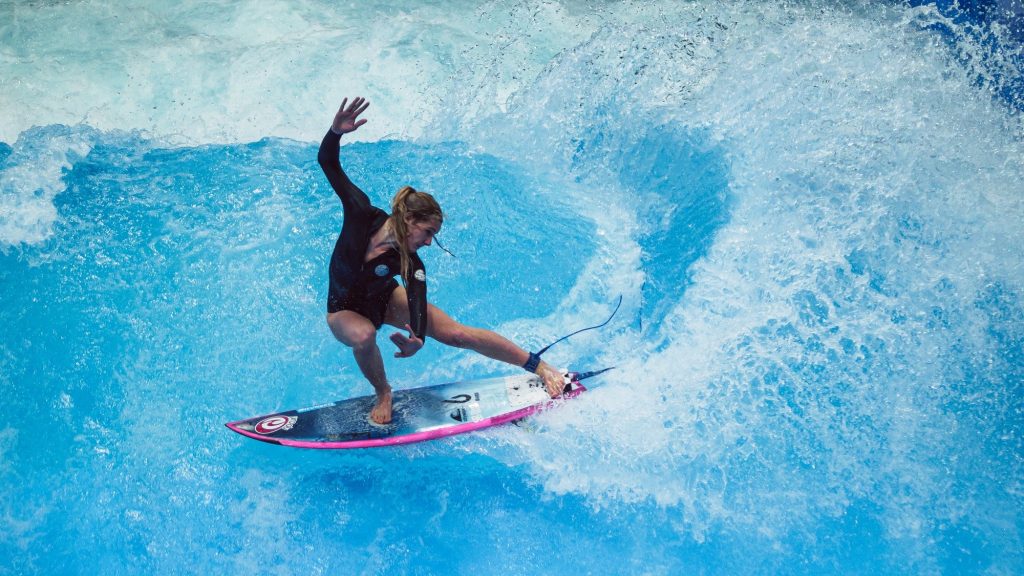
Share with us the stereotype of a typical German surfer.
I think just in general. Germans do a lot of holidays abroad. Pretty much every place you go you find a lot of Germans and they don’t surf that well. I think it is like this because there are big gaps between the times they go to the ocean and I think it’s hard for most to read the ocean. And for some travelers they spend more time on the beach than actually up and riding on a wave. Like they spent the whole summer in France and then they still haven’t really improved. But France is a really, really tricky place for learning to surf. And like I learned to surf in Australia and it was so beginner-friendly, like a big bay with slow waves rolling in, not breaking for ages and was really easy to catch the waves and stuff. So that was what helped me improve a lot.
How will wave pools change the surfing relationship for German surfers? Will they be surfing more frequently? Will they ditch ocean surfing? What do you think will happen?
I think quite a few things will be happening. I know some people who tried to surf in France and thought “oh, that’s bullshit. I’m not catching any waves and it’s so tricky. So I’m just going to stick to the stationary wave.” So I can imagine similar things will be happening with wave pools. When I went to the wave pool in Wales I realized there are quite a lot of people who struggle to read the wave. I mean, it’s easier to read the wave in a wave pool but to catch any wave you still need paddling technique and timing. And I saw some people who booked a session where you are supposed to get 12 waves and then they only get one wave because they missed all the other waves.
What about a future where Germany and other surf-starved countries have neighborhood wave pools?
I think the problem with wave pools will be the cost. So I think you need a non-profit to support clubs and other community stuff to give the kids a chance to practice there frequently and to really improve so they can get to an international level, you know what I mean? Like I don’t know how many parents can afford to send their kids to a wave pool each morning to practice before school.
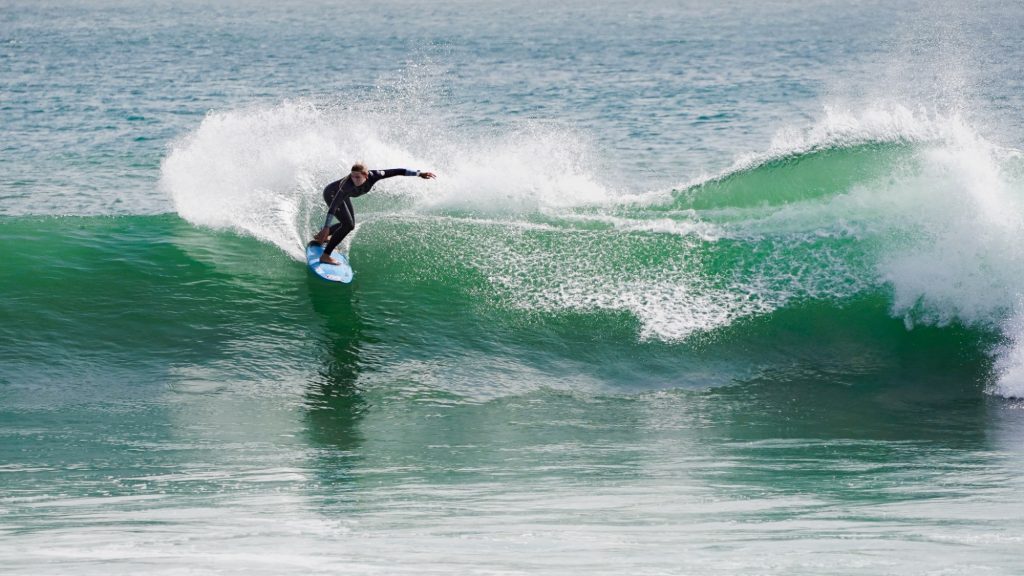
Would this change the face of the German National Team?
The German national team is pretty much, for the girls at least, I think all Americans and one Portuguese. For the guys, they are all from Costa Rica and the Canary Islands and stuff. So none of them grew up in Germany or pretty much never lived in Germany. For the German Federation, a wave pool will be an opportunity if they have a centralized training ground for the national teams. But at the moment this is tricky because, like, one surfer lives in Costa Rica, another one in California and one in South Africa, etc. So other sports have set coaches in one place but for the German team, everyone is spread out.
Suppose there was a surfing tour that just happened for wave pool surfers – those who learned and sessions only at a surf park – how do you think Germany would do?
Oh, then I think then Germany would do great. I mean, you always have to think about like Asian countries. They obsess about waves like everyone else does. I think Germany would do really well. But the Asian countries would produce huge competitors then, too.
Related Coverage
